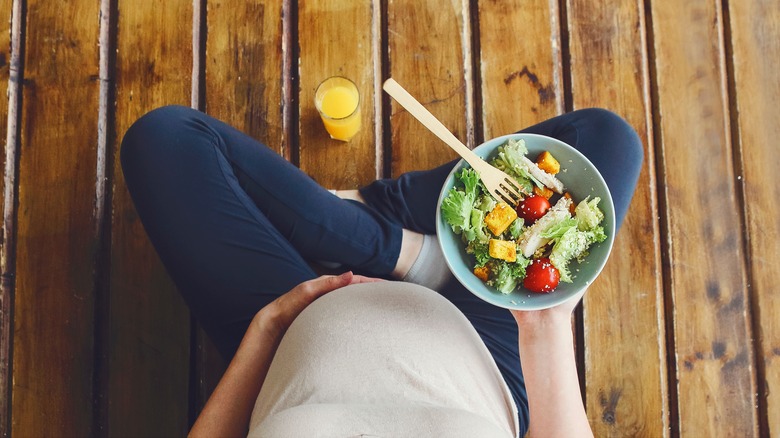Why You Start Developing Food Preferences Before You're Even Born
Picky eaters often draw the ire of cooks, but being a picky eater can be equally as frustrating. If you've ever been asked to justify your preferences, did you not find it challenging? After all, do you really feel in control of your tastes or does it sometimes feel like they were already programmed into you at birth? It turns out, they were. While there are ways to tackle picky eating in childhood and beyond, the origins of our preferences are not so much a choice as something acquired from our days in the womb.
According to reporting from Today, many of the factors that determine our particular likes and dislikes fall outside our realm of control. This applies to all aspects of food, not just taste. A 2015 study revealed that different people have unconscious preferences for certain textures (via National Library of Medicine).
Today adds that certain tastes are influenced by evolutionary developments that taught our primitive ancestors whether something was safe to eat. For example, a slimy texture is a sign of spoiled meat, which may explain why olives, anchovies, and eggplant ranked as the top three most hated foods in America by Google Analytics data in 2021 (via Dakota Radio Group News). However, some aspects of our palate are less a matter of innate instinct than the result of another person's pickiness, namely, your mom's.
A mother's diet impacts the taste of her amniotic fluid
It turns out that your mother's personal tastes play a major role in determining what you can stomach later in life because the food she eats flavors her amniotic fluid, the liquid that surrounds a fetus in the womb (via National Library of Medicine). Swallowing amniotic fluid helps to develop the fetus's respiratory and digestive systems, per Cleveland Clinic, but it also establishes the foundations of their palate throughout life.
Today explains that early exposure is key to getting children to develop a diverse palate, which is why professional chefs like Aarón Sánchez encourage parents to incentivize kids to try as many foods as possible early in life. Of course, it doesn't get any earlier than in the womb. According to the National Library of Medicine, mothers who ate more carrots during pregnancy had children who enjoyed carrots, and the effect even carries over to breastmilk. So, if Mom wants to avoid a headache at mealtime, she might want to start planning way, way, ahead of time.

